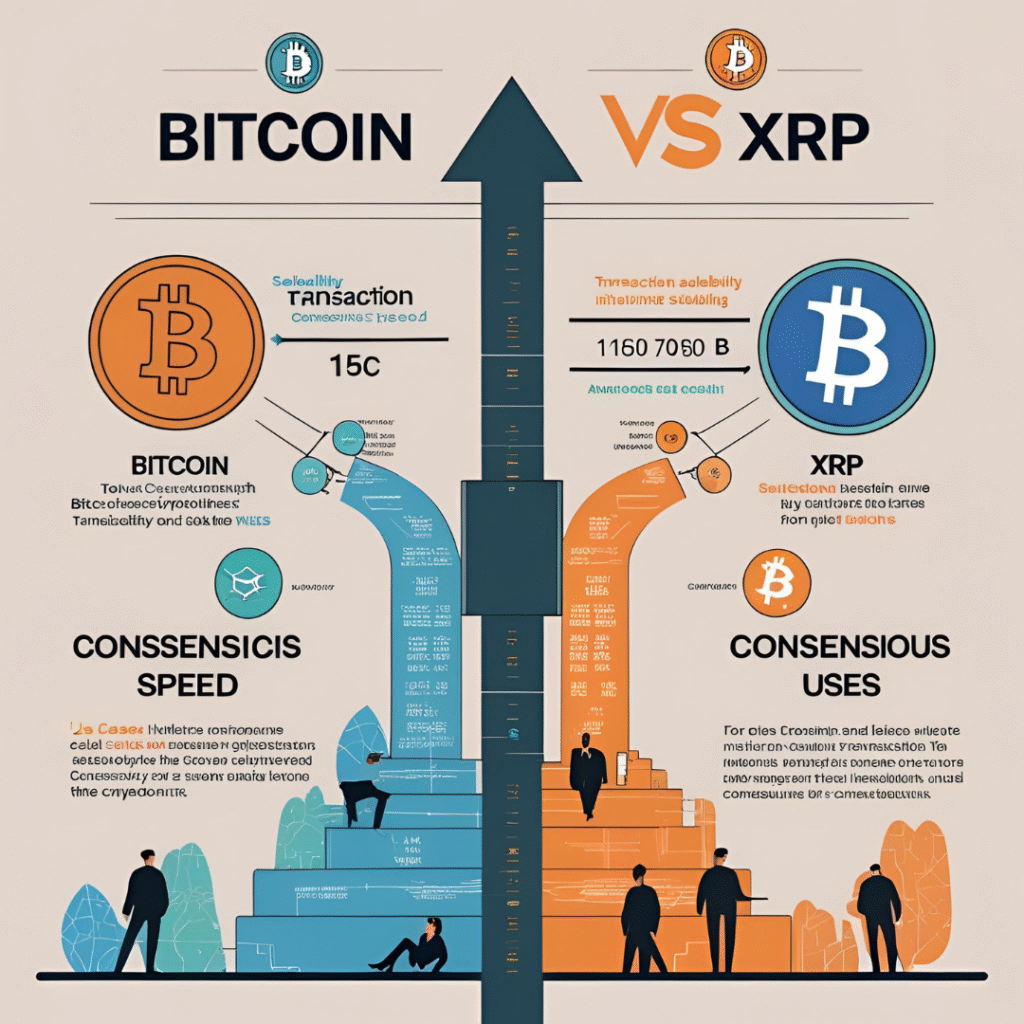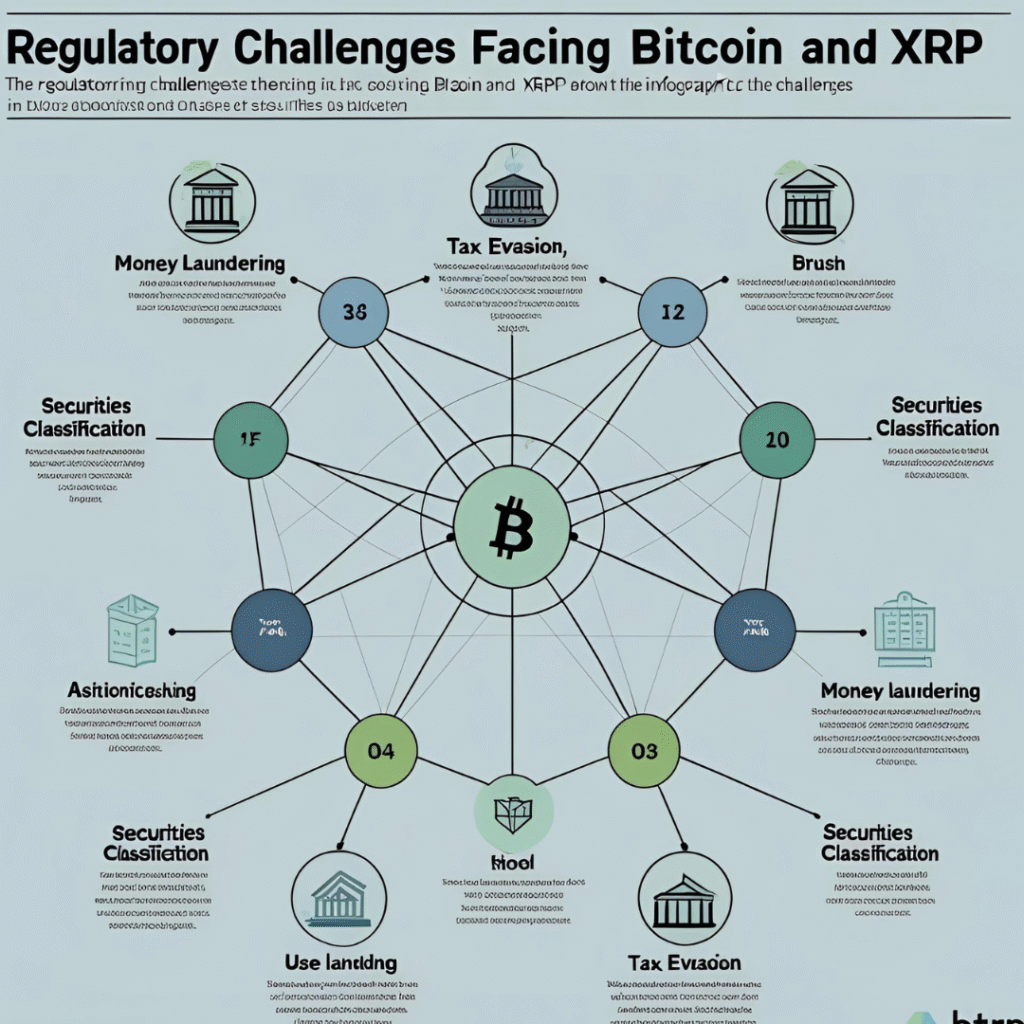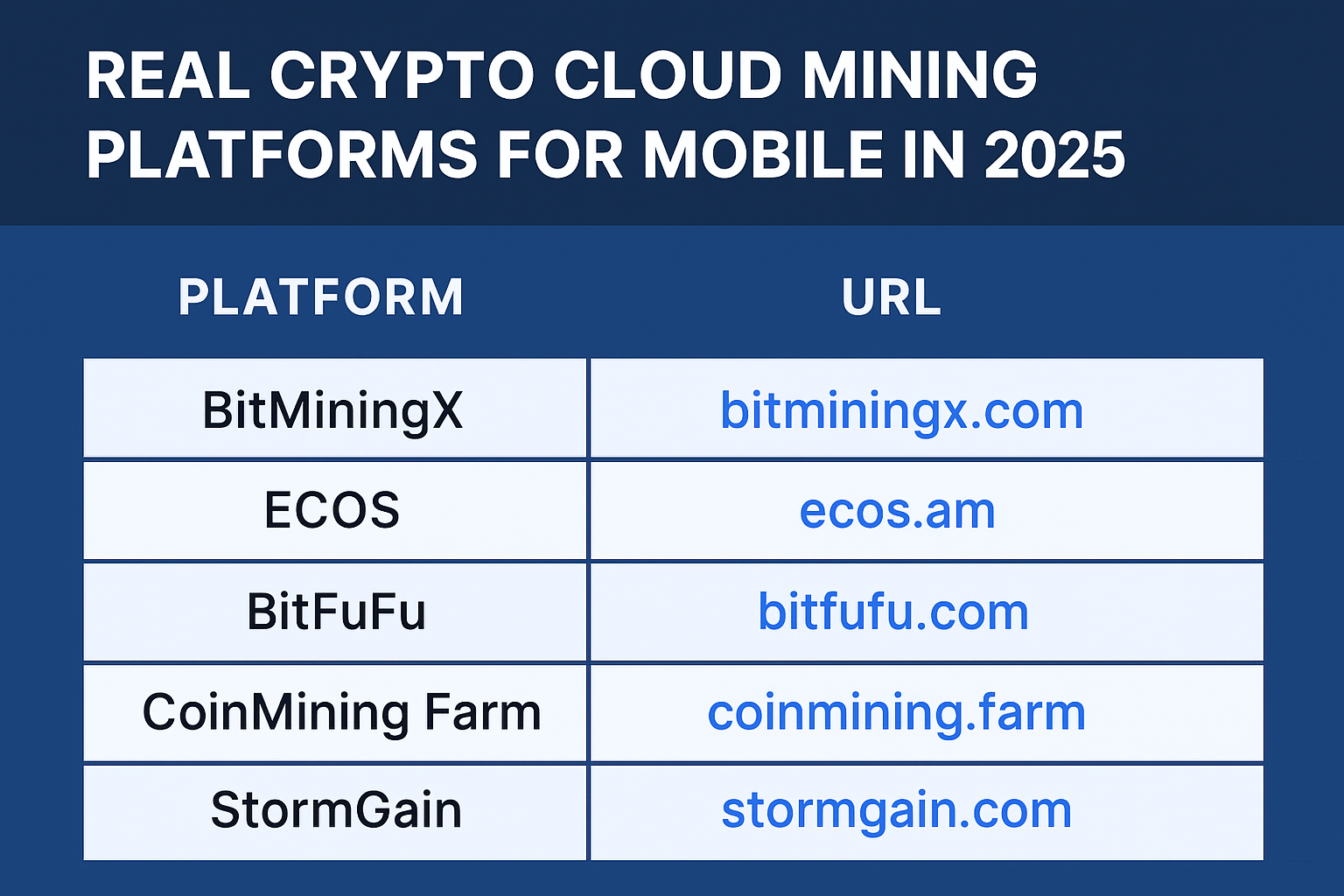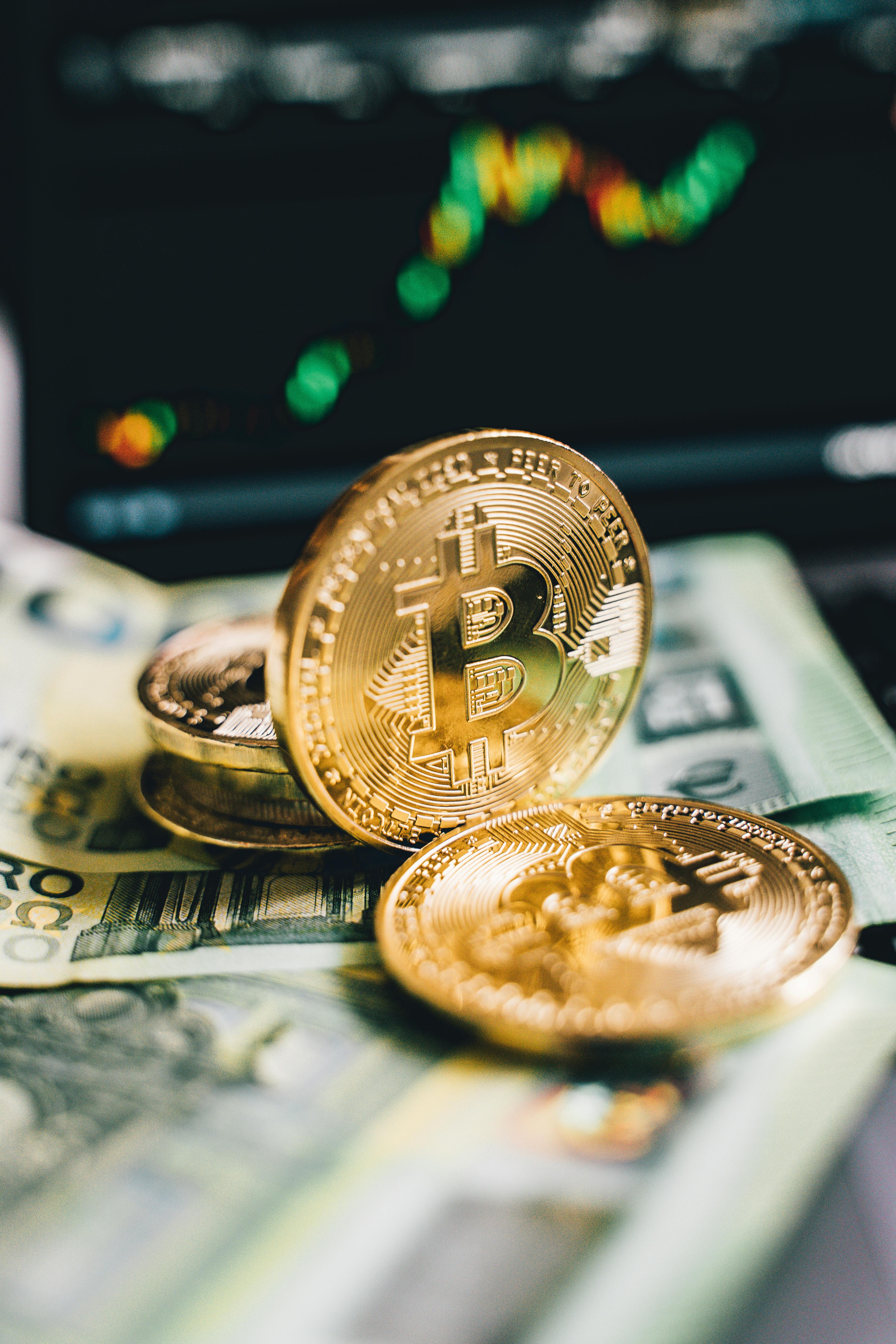Bitcoin vs. XRP serve different purposes within the cryptocurrency space. Bitcoin acts as a decentralized store of value, often referred to as digital gold, while XRP aims to streamline cross-border transactions for financial institutions. Bitcoin’s market dominance and investor perception grant it significant appeal, though regulatory challenges also persist. Conversely, XRP’s utility in international payments offers stability. The evolving landscape will determine how each cryptocurrency positions itself moving forward, revealing more intricacies as developments unfold.
Key Takeaways
- Bitcoin serves as a store of value and is widely recognized, often referred to as digital gold, with a market cap exceeding $500 billion.
- XRP facilitates fast, cost-effective cross-border transactions, targeting financial institutions, and has a market cap around $30 billion.
- Bitcoin enjoys higher adoption rates among retail and institutional investors, while XRP relies on strategic partnerships for growth in the banking sector.
- Regulatory challenges impact both cryptocurrencies, with Bitcoin facing scrutiny over energy use and XRP’s legal battles regarding its classification as a security.
- Institutional interest may enhance Bitcoin’s value, while regulatory clarity could improve XRP’s position in the financial services market.
Overview of Bitcoin and XRP
In the domain of cryptocurrencies, Bitcoin and XRP stand as two prominent figures, each representing distinct technological philosophies and market approaches. Bitcoin, introduced in 2009 by an anonymous entity under the pseudonym Satoshi Nakamoto, is often heralded as the first decentralized digital currency, emphasizing security and scarcity through a capped supply of 21 million coins. Conversely, XRP, created by Ripple Labs in 2012, aims to facilitate fast and cost-effective cross-border transactions, positioning itself as a bridge currency in the financial ecosystem. While Bitcoin serves as a store of value, often likened to digital gold, XRP’s utility lies in its ability to enhance liquidity and streamline international payments. Together, these cryptocurrencies encapsulate the evolving landscape of digital finance, attracting diverse communities of enthusiasts and investors.
Key Differences Between Bitcoin and XRP
In the comparison of Bitcoin vs. XRP, several key differences emerge that highlight their distinct characteristics and functionalities. Transaction speed varies considerably between the two, with XRP generally facilitating quicker transfers, while their use cases diverge as Bitcoin serves primarily as a store of value and XRP focuses on enabling efficient cross-border transactions. Additionally, market capitalization insights reveal contrasting levels of adoption and investment, influencing their positions within the cryptocurrency landscape.

Transaction Speed Comparison
While both Bitcoin and XRP serve as prominent players in the cryptocurrency landscape, their transaction speeds highlight a significant divergence in their operational efficiencies. Bitcoin transactions typically take around 10 minutes to confirm, largely due to its proof-of-work consensus mechanism. In contrast, XRP boasts an impressive transaction time of approximately 3-5 seconds, facilitated by its unique consensus protocol that eliminates the mining process. This fundamental difference positions XRP as a more viable option for real-time transactions and cross-border payments. As the crypto market evolves, the speed of transactions remains an essential factor for users seeking efficiency and convenience. Therefore, in the debate of Bitcoin vs. XRP, transaction speed serves as an important metric in evaluating their respective roles and potential.
Use Cases Differences
The differences in use cases between Bitcoin and XRP illustrate how each cryptocurrency addresses distinct needs within the financial ecosystem. Bitcoin primarily functions as a digital store of value and a decentralized currency, appealing to those seeking long-term investment and a hedge against inflation. Its decentralized nature fosters a sense of community among users who value autonomy. Conversely, XRP is designed for rapid cross-border transactions and is tailored for financial institutions, aiming to enhance liquidity and reduce transaction costs. This distinction positions XRP as a practical tool in the traditional banking sector, emphasizing efficiency and speed. Collectively, these contrasting use cases reveal the varied motivations behind Bitcoin and XRP, highlighting their unique roles in the evolving landscape of cryptocurrencies.
Market Capitalization Insights
Market capitalization serves as a critical indicator of a cryptocurrency’s overall market value and investor sentiment, revealing significant disparities between Bitcoin and XRP. As of October 2023, Bitcoin consistently maintains a market cap exceeding $500 billion, positioning it as the dominant player in the cryptocurrency landscape. This valuation reflects Bitcoin’s status as the first and most widely recognized cryptocurrency, often seen as digital gold. Conversely, XRP’s market capitalization hovers around $30 billion, reflecting its niche focus on facilitating cross-border transactions rather than serving as a store of value. The stark difference in market capitalizations illustrates varying investor perceptions and adoption rates, with Bitcoin viewed as a safer long-term investment compared to XRP’s utility-driven approach, influencing their respective roles in the crypto ecosystem.
Market Performance Comparison
In recent years, Bitcoin has consistently maintained its position as the leading cryptocurrency, often overshadowing XRP, which has carved its niche within the digital asset landscape. When analyzing market performance, Bitcoin’s price volatility remains a critical factor, frequently experiencing significant fluctuations that attract both investors and speculators. Conversely, XRP has exhibited more stability, appealing to those seeking a less turbulent investment.

Additionally, Bitcoin’s market dominance is reflected in its larger market capitalization, while XRP’s performance is influenced by its partnerships with financial institutions. This divergence highlights contrasting strategies and investor profiles. Consequently, in the ongoing debate of Bitcoin Vs XRP, market performance underscores differing investment philosophies, with Bitcoin representing a high-risk, high-reward approach, while XRP embodies a more conservative avenue within the cryptocurrency space.
Use Cases and Adoption Rates
In the ongoing comparison of Bitcoin vs XRP, understanding their respective use cases and adoption rates is essential for evaluating their long-term viability. Bitcoin primarily serves as a store of value and a medium of exchange, while XRP is designed for facilitating fast and cost-effective cross-border transactions. Examining real-world applications and market adoption trends reveals how each cryptocurrency addresses unique challenges within the financial ecosystem.
Real-World Applications
The landscape of cryptocurrency is markedly shaped by the real-world applications of its leading players, particularly Bitcoin and XRP. Bitcoin, often referred to as digital gold, finds its primary use in wealth preservation and as a speculative investment. Its robust security and decentralized nature appeal to those seeking an alternative to traditional currencies. Conversely, XRP is designed for efficient cross-border transactions, aiming to facilitate rapid and cost-effective transfers between financial institutions. Its adoption by various banks and payment providers underscores its utility in streamlining remittance processes. Therefore, while Bitcoin excels in value storage, XRP targets the financial sector, each fulfilling distinct roles in a diversifying market. Ultimately, both cryptocurrencies showcase unique real-world applications, appealing to different user needs.
Market Adoption Trends
As cryptocurrency continues to evolve, market adoption trends reveal significant differences between Bitcoin and XRP regarding use cases and adoption rates. Bitcoin, often viewed as digital gold, has gained traction primarily as a store of value, appealing to investors seeking long-term wealth preservation. In contrast, XRP focuses on facilitating cross-border transactions, aiming to enhance the efficiency of global payments.
Adoption rates for Bitcoin have surged among retail investors, driven by increasing institutional interest and media attention. Conversely, XRP’s use case in banking and financial institutions has led to strategic partnerships, fostering its integration into existing monetary systems. Collectively, these trends highlight the distinct paths of Bitcoin and XRP, each carving out its niche in the rapidly changing cryptocurrency landscape.
Regulatory Challenges Facing Bitcoin and XRP
While both Bitcoin and XRP have garnered considerable attention in the cryptocurrency landscape, they face distinct regulatory challenges that could shape their futures. Bitcoin, often viewed as a decentralized asset, faces scrutiny regarding its use in illicit activities and potential environmental concerns due to energy-intensive mining. Regulatory bodies, particularly in the United States, are contemplating frameworks that could impact its status as a commodity.

Conversely, XRP has been embroiled in legal battles with the U.S. Securities and Exchange Commission (SEC), which classifies it as a security. This classification could impose stringent compliance requirements on Ripple, the company behind XRP. The outcomes of these regulatory challenges will considerably influence market perceptions and the long-term viability of Bitcoin and XRP in the evolving financial ecosystem.
Community and Developer Support
Community and developer support plays an essential role in determining the longevity and success of cryptocurrencies like Bitcoin and XRP. Bitcoin boasts a robust, decentralized community that has fostered a rich ecosystem of developers, enabling continuous innovation and security enhancements. This grassroots support has cultivated a strong sense of belonging among users, further solidifying Bitcoin’s position as a market leader.
In contrast, XRP benefits from significant backing by Ripple Labs, which drives development and partnerships. While this centralized approach offers rapid advancements, it can also lead to skepticism within the community regarding decentralization. Ultimately, the contrasting dynamics of community and developer support in Bitcoin vs. XRP reveal fundamental differences that could influence each cryptocurrency’s trajectory and acceptance in the broader financial landscape.
Future Outlook for Bitcoin and XRP
What lies ahead for Bitcoin and XRP in the rapidly evolving cryptocurrency landscape? As institutional adoption increases, Bitcoin’s role as a digital gold may solidify, potentially driving its value and acceptance among mainstream investors. Conversely, XRP’s focus on enhancing cross-border transactions positions it uniquely to capture a significant share of the financial services market, especially as regulatory clarity improves. Both cryptocurrencies face competition from emerging technologies and regulatory challenges that could impact their trajectories. While Bitcoin’s decentralized nature appeals to individual investors seeking autonomy, XRP’s partnerships with financial institutions may foster broader utility. Ultimately, the future of Bitcoin vs XRP will depend on their ability to adapt and respond to market demands, ensuring their relevance in an increasingly competitive environment.
Frequently Asked Questions
How Do Bitcoin and XRP Handle Transaction Fees?
Transaction fees for Bitcoin are determined by network congestion and block size, often fluctuating widely. In contrast, XRP maintains consistently low fees due to its unique consensus mechanism, facilitating quicker transactions and greater cost efficiency.
Which Cryptocurrency Is More Environmentally Friendly?
In evaluating environmental friendliness, Bitcoin’s energy-intensive proof-of-work model contrasts sharply with XRP’s efficient consensus algorithm. This disparity highlights the growing importance of sustainability in cryptocurrency, influencing investment decisions and user preferences toward greener options.
What Are the Main Security Features of Bitcoin and XRP?
The main security features of Bitcoin include its decentralized network and proof-of-work consensus mechanism, while XRP employs a unique consensus protocol among trusted validators, enhancing transaction speed and reducing risks associated with centralization and fraud.
Can Bitcoin and XRP Be Used for Remittances?
Both Bitcoin and XRP can facilitate remittances, yet their efficiencies differ. XRP is often favored for speed and lower costs, while Bitcoin provides a more decentralized approach, appealing to users valuing security and potential long-term investment.
What Wallets Support Both Bitcoin and XRP?
Several wallets support both Bitcoin and XRP, including Exodus, Atomic Wallet, and Ledger hardware wallets. These options provide users with secure storage, easy access, and the ability to manage multiple cryptocurrencies seamlessly within one interface.
Conclusion
In the ongoing rivalry between Bitcoin and XRP, both cryptocurrencies exhibit distinct strengths and weaknesses that appeal to different segments of the market. Bitcoin’s status as a decentralized store of value contrasts sharply with XRP’s focus on facilitating efficient cross-border transactions. As regulatory landscapes evolve and adoption rates shift, the future remains uncertain. Ultimately, the crypto crown may not be confined to a single winner; rather, both Bitcoin and XRP could coexist, each serving unique roles in the financial ecosystem.




